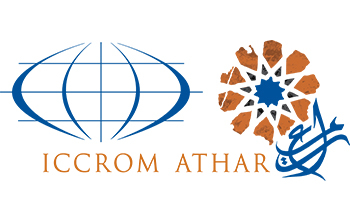ICCROM – ATHAR Award for Cultural Heritage Conservation in the Arab Region
Under the patronage of His Highness Sheikh Dr. Sultan bin Mohammed Al Qasimi, Member of the Supreme Council, Ruler of Sharjah, the ICCROM-ATHAR Regional Conservation Centre in Sharjah (ICCROM-ATHAR) invites applications for the Award for Cultural Heritage Conservation in the Arab Region, 2017. This Biennial Award seeks to honour and reward outstanding work that contributes to the protection and vitality of tangible cultural heritage in the Arab world.
The Award reflects ICCROM-ATHAR’s commitment to:
- help safeguard the cultural heritage of the Arab region;
- promote international ethics in the practice of tangible heritage conservation;
- facilitate the exchange of knowledge and experience across borders;
- enhance public awareness and appreciation of cultural heritage;
- encourage excellence through example.
The Award is organized in two stages. The first stage is an open competition resulting in nominations for exemplary projects. Between eight and 15 nominated projects will be selected that reflect the quality and variety of the applications. The nominated projects will then be put forward for the second stage. Representatives of the nominated projects will be invited to present to an independent panel of internationally renowned experts who will select the winner. The nominated projects will be exhibited at the Award event and published by ICCROM.
Timeframe:
Entry deadline for the 2017 Award for Cultural Heritage Conservation is 2 December 2017. Announcement of the nominated projects eligible for the Grand Prix Award will be on December 28th, 2017 and Award Event and Exhibition and Announcement of Grand Prix Award winner on 5 and 6 February 2018.
- For the purposes of the Award, tangible cultural heritage is defined broadly, including but not restricted to:
- Architectural or built heritage
- Building additions or alterations
- New design or building projects that help conserve a heritage context
- Cultural landscapes
- Historic parks and gardens
- Archaeological sites
- Display or care of museum objects and collections
- Works of art, religious or symbolic artefacts.
- The protection offered by the project is understood as the effectiveness of the conservation approach in preserving the heritage asset against perceived threats – whether natural or human – for future generations to enjoy. The project might involve rescue and recording techniques, physical consolidation or repair work, restoration and rehabilitation, or rebuilding post-destruction.
- The vitality of the cultural heritage project will be assessed through its impact on the social context; for example, the stakeholders and the communities who identify with or benefit from the heritage, the resource it creates by restoring its use or increasing its public appreciation. The project might involve reprogramming or adaptive reuse, site management strategies, presentation and display, new facilities, buildings or forms of engagement.
The Award is for the conservation of tangible cultural heritage of historical, cultural or scientific significance to its local or wider community. The cultural heritage may be from any period, of any material and at any scale, from a single object to a building to a complete landscape. All projects will be judged on their own merits with particular attention paid to:
- The appropriateness of the project with regard to the challenges faced by the cultural heritage
- How well the project has been planned and implemented in a conservation process
- The project-specific technical conservation philosophy, the techniques and materials used and the quality of execution
- The project-specific social conservation philosophy, its impact, its sensitivity to original character and use, its positive cultural, environmental or economic benefits to communities, its sustainability.
Eligibility:
- The Award is open to heritage conservation projects in the Arab region undertaken by public or private institutions, government departments, public-private partnerships, or private sector initiatives based in the Arab region.
- A submission to the Award may be made by any professional member of the project team if accompanied by consent from the owner and a letter of support from the project client or leader (if they are not the applicant).
- The Award is open to projects of any scale or budget that fulfil the criteria.
- The work must have been completed within the past three years at the time of submission. Ongoing projects may be submitted if a substantial part of the project has been successfully completed and fulfils the award criteria.
- If an entry is not selected as a nominated project, it may be re-submitted one more time with additional documentation.
- The cultural heritage being conserved must be over 50 years old. Similarly, for settlements and landscapes, or newly created cultural contexts, the essential historic elements must be more than 50 years old.

